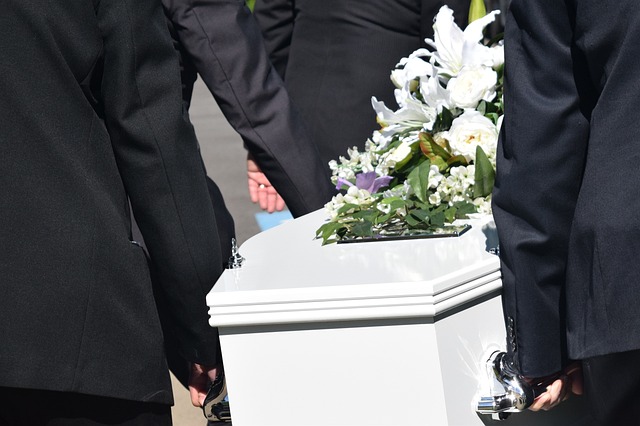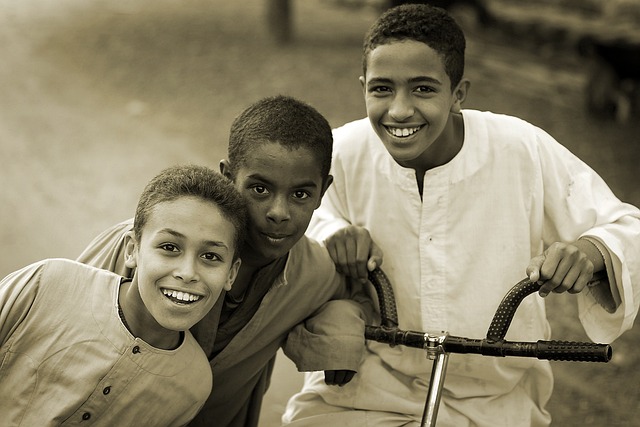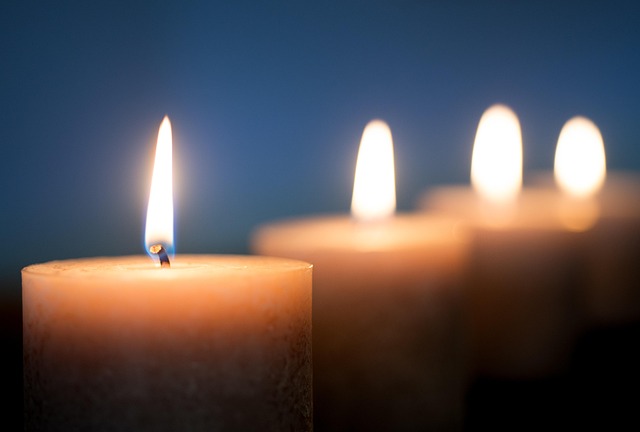
Introduction to Death and Its Significance in Nigerian Culture
Death is a universal experience but its significance varies across cultures. In Nigeria death is not just an end but a deeply cultural event that reflects the values and beliefs of its people. Understanding death in Nigeria requires looking at the numbers and the stories behind them.
Nigeria faces a high mortality rate that impacts families and communities daily. The causes of death in Nigeria are diverse ranging from diseases to violence. These factors contribute to a life expectancy in Nigeria that is lower than the global average.
One of the most heartbreaking statistics is the infant mortality rate in Nigeria. Thousands of children do not live to see their fifth birthday due to preventable causes. Similarly maternal mortality in Nigeria remains a critical issue with many women losing their lives during childbirth.
The death toll from diseases in Nigeria is staggering. Malaria tuberculosis and HIV/AIDS are among the leading killers. These diseases thrive in conditions exacerbated by poverty and inadequate healthcare.
Violent deaths in Nigeria are also a significant concern. Conflicts banditry and communal clashes claim many lives each year. These violent deaths add to the already heavy burden of death statistics in Nigeria.
Poverty plays a major role in the high death rates. The impact of poverty on death rates in Nigeria is evident in the lack
Death in Nigeria is not just an end but a deeply cultural event that reflects the values and beliefs of its people.

Overview of Traditional Funeral Rites in Nigeria
Traditional funeral rites in Nigeria are deeply rooted in culture and spirituality. They reflect the values beliefs and traditions of various ethnic groups across the country. These rites are not just about saying goodbye to loved ones but also about honoring their legacy and ensuring their peaceful transition to the afterlife.
Nigeria faces significant challenges when it comes to mortality rates. The high mortality rate in Nigeria is a pressing issue influenced by various factors. Understanding these factors is crucial to addressing the root causes and improving the overall well-being of the population.
One of the primary causes of death in Nigeria is the prevalence of infectious diseases. Malaria tuberculosis and HIV/AIDS continue to claim many lives. These diseases are often exacerbated by limited access to healthcare and poor sanitation.
Life expectancy in Nigeria remains relatively low compared to global standards. This is largely due to the high infant mortality rate in Nigeria and maternal mortality in Nigeria. Many children do not survive past their fifth birthday and many mothers lose their lives during childbirth.
The death toll from diseases in Nigeria is staggering. Preventable illnesses account for a significant portion of deaths. This highlights the urgent need for improved healthcare infrastructure and public health initiatives.
Violent deaths in Nigeria are another major concern. Conflicts banditry and communal
Nigeria faces a high mortality rate that impacts families and communities daily.
The Role of Age and Gender in Nigerian Funeral Customs
The Role of Age and Gender in Nigerian Funeral Customs
Funeral customs in Nigeria are deeply rooted in culture tradition and spirituality. These practices often reflect the values beliefs and social structures of the communities. However age and gender play significant roles in shaping how funerals are conducted and perceived.
Nigeria faces a high mortality rate which influences funeral traditions. Understanding the causes of death in Nigeria is crucial to grasping the context of these customs. From life expectancy in Nigeria to infant mortality rate in Nigeria the statistics paint a vivid picture of the challenges faced by the population.
Maternal mortality in Nigeria is another critical factor that impacts funeral practices. The death toll from diseases in Nigeria is alarmingly high with healthcare challenges leading to deaths in Nigeria being a major contributor. Additionally violent deaths in Nigeria add another layer of complexity to the mourning process.
The impact of poverty on death rates in Nigeria cannot be overlooked. Poverty exacerbates healthcare challenges leading to deaths in Nigeria and contributes to the overall death statistics in Nigeria. These factors collectively shape how funerals are conducted and who is most affected by them.
Age plays a pivotal role in Nigerian funeral customs. The loss of an elder is often mourned differently compared to the death of a child
One of the most heartbreaking statistics is the infant mortality rate in Nigeria.

Pre-Funeral Rituals and Preparations
Pre-funeral rituals and preparations are deeply rooted in Nigerian culture. They reflect the community’s respect for the deceased and provide comfort to grieving families. However understanding these traditions requires a closer look at the broader context of mortality in Nigeria.
Nigeria faces a high mortality rate with various factors contributing to this challenge. From diseases to violent deaths the causes of death in Nigeria are diverse and often interconnected.
Life expectancy in Nigeria remains low compared to global averages. This is influenced by factors such as infant mortality rate and maternal mortality which are significant concerns in the country.
The infant mortality rate in Nigeria is alarmingly high. Many newborns do not survive their first year due to preventable causes. This is a heartbreaking reality for many families.
Maternal mortality in Nigeria is another critical issue. Many women lose their lives during childbirth often due to inadequate healthcare services. This highlights the urgent need for better maternal care.
The death toll from diseases in Nigeria is staggering. Diseases like malaria tuberculosis and HIV/AIDS claim countless lives each year. These deaths are often exacerbated by limited access to healthcare.
Violent deaths in Nigeria are also a major concern. Conflicts banditry and communal clashes contribute to the rising death statistics in the country
The death toll from diseases in Nigeria is staggering.
Key Elements of a Nigerian Funeral Ceremony
Understanding the key elements of a Nigerian funeral ceremony is not just about tradition but also about reflecting on the realities of life and death in Nigeria. With a high mortality rate in Nigeria funeral ceremonies are more than cultural events they are moments of collective reflection and healing.
Nigeria faces significant challenges when it comes to health and mortality. The causes of death in Nigeria range from infectious diseases to complications arising from poverty. Life expectancy in Nigeria remains low compared to global averages and this is a stark reminder of the struggles many Nigerians face daily.
One of the most heartbreaking statistics is the infant mortality rate in Nigeria. Thousands of children do not live to see their fifth birthday. Similarly maternal mortality in Nigeria is alarmingly high with many women losing their lives during childbirth. These figures are not just numbers they represent real lives and families torn apart.
The death toll from diseases in Nigeria is another critical issue. Diseases like malaria tuberculosis and HIV/AIDS claim countless lives every year. Violent deaths in Nigeria also contribute to the grim death statistics in Nigeria. From communal clashes to armed robberies violence is a significant factor in the country’s mortality rates.
Poverty plays a devastating role in these statistics. The impact of poverty on death rates in Nigeria cannot
Violent deaths in Nigeria are also a significant concern.

The Importance of Community and Family in Mourning
Losing a loved one is never easy. In Nigeria where the high mortality rate is a harsh reality the importance of community and family in mourning cannot be overstated. Families and communities come together to provide emotional support share the burden of grief and honor the memory of those who have passed. This collective strength is vital in a country where death statistics reveal a challenging landscape.
Nigeria faces a high mortality rate due to various causes of death. From infectious diseases to violent deaths the death toll from diseases in Nigeria is staggering. Maternal mortality in Nigeria and infant mortality rate in Nigeria are particularly concerning. These issues are compounded by healthcare challenges leading to deaths in Nigeria and the impact of poverty on death rates in Nigeria. Life expectancy in Nigeria remains lower than the global average reflecting these struggles.
In times of loss the role of family and community becomes even more critical. They provide a support system that helps individuals navigate the pain of grief. This is especially important in a society where the death statistics in Nigeria highlight the frequency of loss. Families often lean on each other for financial and emotional support during funerals and mourning periods.
The causes of death in Nigeria are diverse ranging from preventable diseases to violent deaths. The death toll from diseases in Nigeria is exacerbated
Differences in Funeral Practices Across Nigerian Ethnic Groups
Funeral practices in Nigeria are as diverse as the country’s rich cultural tapestry. With over 250 ethnic groups each community has unique ways of honoring the departed. Understanding these differences not only fosters cultural appreciation but also sheds light on the broader context of mortality in Nigeria.
Nigeria faces a high mortality rate influenced by various factors. Causes of death in Nigeria range from infectious diseases to violent conflicts. These challenges are compounded by healthcare challenges leading to deaths in Nigeria such as inadequate medical facilities and a shortage of skilled professionals.
Life expectancy in Nigeria remains relatively low compared to global standards. Infant mortality rate in Nigeria and maternal mortality in Nigeria are particularly concerning. These statistics highlight the urgent need for improved healthcare infrastructure and access to quality medical services.
The death toll from diseases in Nigeria is staggering. Malaria tuberculosis and HIV/AIDS are among the leading causes of death. Additionally violent deaths in Nigeria often linked to communal clashes and insurgency further exacerbate the situation.
Death statistics in Nigeria reveal a grim reality. The impact of poverty on death rates in Nigeria cannot be overstated. Many Nigerians lack access to basic healthcare and nutritious food which significantly increases their vulnerability to diseases and premature death.
Despite these challenges Nigerian ethnic groups have developed unique funeral practices

Modern Influences on Traditional Funeral Rites
Modern Influences on Traditional Funeral Rites in Nigeria
Funeral rites in Nigeria have always been deeply rooted in culture and tradition. However modern influences are reshaping how we honor the departed. This blog explores these changes while addressing critical health and mortality issues in the country.
Nigeria faces a high mortality rate with causes ranging from diseases to violent deaths. Understanding these factors is crucial to appreciating how funeral practices are evolving.
Life expectancy in Nigeria remains low due to healthcare challenges and poverty. These issues not only affect the living but also influence how we mourn and remember those who pass.
Infant mortality rate in Nigeria is alarmingly high. This tragic reality has led to shifts in how families grieve and commemorate young lives lost.
Maternal mortality in Nigeria is another pressing concern. The loss of mothers often leaves families reeling and impacts traditional funeral customs.
The death toll from diseases in Nigeria is staggering. Diseases like malaria and cholera claim many lives altering the way communities conduct funeral rites.
Violent deaths in Nigeria often result from conflicts and insecurity. These untimely deaths bring unique challenges to traditional mourning practices.
Death statistics in Nigeria reveal a harsh truth. Poverty and inadequate healthcare are major contributors
The Role of Religion in Nigerian Funeral Customs
The Role of Religion in Nigerian Funeral Customs
Nigeria is a country rich in culture and tradition. Religion plays a significant role in shaping how Nigerians honor their deceased loved ones. From Christian to Islamic and traditional African beliefs funeral customs are deeply rooted in spiritual practices.
However understanding these customs requires a look at the broader context of mortality in Nigeria. The high mortality rate in Nigeria is a pressing issue. Many factors contribute to this including causes of death in Nigeria such as infectious diseases accidents and violence.
Life expectancy in Nigeria is relatively low compared to global standards. This is partly due to the infant mortality rate in Nigeria which remains high despite efforts to improve healthcare. Maternal mortality in Nigeria is another critical concern with many women losing their lives during childbirth.
The death toll from diseases in Nigeria is staggering. Diseases like malaria tuberculosis and HIV/AIDS claim thousands of lives annually. Violent deaths in Nigeria also add to the grim statistics often linked to conflicts and insecurity.
Death statistics in Nigeria reveal a harsh reality. Poverty plays a significant role in these numbers. The impact of poverty on death rates in Nigeria cannot be overstated. Limited access to clean water nutritious food and basic healthcare services exacerbates the situation.
Healthcare challenges leading

Conclusion: Preserving Tradition While Embracing Change
Preserving Tradition While Embracing Change: A Path Forward for Nigeria’s Health
Nigeria stands at a crossroads where tradition meets modernity. While our rich cultural heritage is something to cherish we must also confront the pressing health challenges that threaten our future. The high mortality rate in Nigeria is a stark reminder of the work that needs to be done. From the causes of death in Nigeria to the life expectancy in Nigeria the numbers tell a story of struggle and resilience.
One of the most heartbreaking statistics is the infant mortality rate in Nigeria. Too many children are lost before they even have a chance to thrive. Maternal mortality in Nigeria is another critical issue with countless mothers losing their lives during childbirth. These deaths are not just numbers they represent families torn apart and communities left grieving.
The death toll from diseases in Nigeria is alarmingly high. Diseases that are preventable or treatable continue to claim lives. Violent deaths in Nigeria add another layer of tragedy with conflicts and insecurity taking a heavy toll. When we look at the death statistics in Nigeria it becomes clear that poverty plays a significant role. The impact of poverty on death rates in Nigeria cannot be overstated. Limited access to healthcare education and basic necessities creates a cycle that is hard to break.
Frequently Asked Questions
What are the leading causes of death in Nigeria?
The leading causes of death in Nigeria include diseases like malaria tuberculosis and HIV/AIDS as well as violent deaths from conflicts and communal clashes. Practical tip: Stay informed about preventive measures and access local health resources to reduce risks.
How does poverty affect death rates in Nigeria?
Poverty exacerbates death rates by limiting access to healthcare proper nutrition and safe living conditions. Practical tip: Support or engage with community programs that address poverty and healthcare access.
What is the infant mortality rate in Nigeria and why is it so high?
The infant mortality rate in Nigeria is high with thousands of children not surviving past their fifth birthday due to preventable causes like poor healthcare and malnutrition. Practical tip: Advocate for better maternal and child health services in your community.
Can traditional funeral rites in Nigeria vary by ethnic group?
Yes traditional funeral rites in Nigeria vary significantly across ethnic groups reflecting their unique cultural values and beliefs. Practical tip: Research or consult with local elders to understand specific customs for respectful participation.














